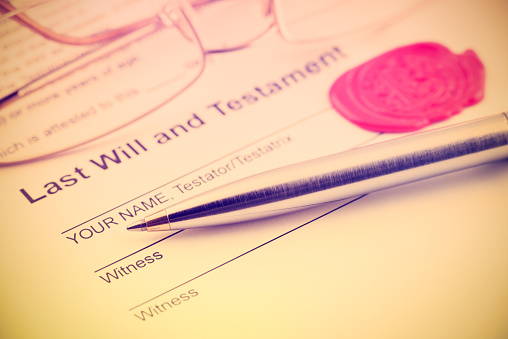Death of a sole shareholder
Preparation is key to running a business successfully, but unexpected events can render a business vulnerable. That’s why business owners should always consider contingency planning for ill health and death - particularly when they are the sole shareholder and director.

Where a company has a sole shareholder and director, and that individual dies, there can be serious practical problems in ensuring that the company can carry on with business.
Death of a sole shareholder and director – what can a company do?
For example, often it is only a director who can authorise payments from the bank. If the sole director dies, a company may quickly face challenges in paying suppliers, employees, and other creditors.
In this situation, a new director needs to be appointed as soon as possible.
The company’s articles of association – that is, the company’s constitution – will usually contain provisions on how new directors are appointed. Typically, appointments can be made by shareholders or by directors. But, if the company’s sole shareholder/director has died, who can exercise this power?
The only members of a company are those whose names are entered in the register of members – so unless and until that register is updated, the deceased remains the registered holder of their shares.
What can the deceased’s executors do?
Articles of association often provide that, on a shareholder’s death, their shares vest in their executors and they can elect to be registered as shareholder.
Following registration, the executors can appoint a new director to run the business.
However, if there are no surviving directors, there isn’t anyone who can deal with the executors' election and update the company’s register of members to reflect the executors as the new shareholder.
In this situation, the company’s articles must be checked to see whether there is another mechanism to appoint a new director.
Sometimes, there are helpful provisions in the articles – for instance, allowing the executor to exercise the voting rights attaching to the deceased’s shares, or enabling the personal representatives of the last shareholder to die to appoint a director.
Unfortunately, many companies – particularly those with older forms of articles – will not have such a provision in their articles.
Where there is no means to appoint a new director, remember that executors cannot just update the register of members themselves – even if they are entitled under the articles to be registered as shareholders.
Instead, the executors must apply to court and ask it to:
- order 'rectification' of the register of members, and
- authorise the executors to carry out that rectification
Do the executors have to receive their grant of probate/confirmation before applying to court?
Probate (confirmation in Scotland) is the evidence of an executor’s entitlement to the deceased’s shares.
Normally, a company should await a grant of probate before registering an executor as the holder of a deceased member’s shares.
But in the recent case of Ellot v Cimarron UK Ltd, an English court allowed registration before probate grant due to exceptional circumstances.
There was a real risk that the company’s bank account would be frozen and it would not be able to continue to trade as a result.
The court decided that it was not necessary for the executor to obtain a grant of probate to become entitled to be registered as a shareholder where there was no dispute over the title.
Five top tips to help business owners to plan
- Check the articles. What provisions do they contain for death of a shareholder or director? Are they adequate for the company’s current and future situation?
- Ensure the business owner has executed a will and its provisions for the shares are consistent with the company’s articles.
- Identify point dependencies. Does one person have all the necessary business knowledge? Who manages all the customer and supplier relationships? Who knows the password to access the company’s computer systems? Who can authorise payments from the bank?
- Consider whether it is possible or appropriate to enable an employee to do any of these key activities. Should training or knowledge transfer be carried out so that the company still runs effectively should a director be indisposed?
- In the mid to longer term, consider succession planning. When would the business owner wish to hand over the reins? To whom? What legal and practical steps need to be taken to make this happen?
Business owners work hard to build up the value of their business. A bit of planning now will help to preserve that value. Ensuring that the business can continue to run, should the worst happen, will also alleviate pressure on any employees as well as the owner’s dependants.
About the author
Fiona Beal is a practice development lawyer in Brodies’ corporate team.
See also
